Raising pigeons commercially or as hobby, both are very popular in many countries around the world. And in some areas, keeping pigeons is the main hobby of some people, because it is the most popular domestic bird in many countries. Most of the people like the beauty of these pigeons. Pigeons were raised to exchange letter in the past. Many ancient King preferred pigeons for exchanging different types of message.
Actually, pigeon is the representative of Peach throughout the world. For this reason, in addition to any constructive work pigeon are released from the pigeon cages. There are many types of the pigeons available throughout the world. Some types of pigeons are white pigeons, flying pigeons, racing pigeons, Pakistani pigeons, Indian fantail pigeons, tumbler pigeons, roller pigeons, pipa pigeons etc.
The most important thing is that, raising pigeons is very easy and simple. These birds can be managed easily and required less expanses. If you want to start raising pigeons, then first you have to buy pigeons. And before buying pigeons, you have to keep in mind some essential information. Baby pigeons or squab grows very fast. You also have to be conscious about pigeon health and pigeon diseases. Before you start raising pigeons you have to have a little concept about pigeon breeding and their food.
Pigeon can be raised simply at the corner of the house, roof and some other small places, even with the hanging basket in roof. For this reason, you can start raising pigeons both in cities and villages. Some people also prefer raising pigeons for meat. The meat of the pigeon is very tasty, nutritious and restorative. It contains much protein than other bird meat. For this reason it is consumed to fulfill the demand of meat and protein. And raising pigeons commercially is a profitable business.
There are many similarities between pigeons and doves. Doves and pigeons are likely looks same. Pigeons generally stay with in pair. Each pair contain a male and female. They can live up to 12-15 years. The reproduction of pigeon through their egg as long as they survive. After laying eggs both male and female heat them one by one. If one pair of pigeon is broken it is so difficult to rebuild their relation. To make a new pair one male and female should have to keep in a room for a few days. There are some advantages of keeping pigeon.
What Are The Advantages Of Raising Pigeons?
Like many other business, raising pigeons also have numerous advantages or benefits. Here we are trying to list the most common advantages of raising pigeons.
- A good pair of pigeon can generally produce up to 12 pairs of egg, and almost all of these egg produce a baby pigeon. And you can sell these baby pigeons and can be used for meat within the next 4 weeks.
- You can keep the pigeons with other household birds.
- It is very easy to observe the pigeons.
- Feeding cost is low.
- You can provide your pigeons with common poultry feeds.
- You will need relatively less space for raising pigeons.
- You can raise pigeons even in a hanging basket.
- Cost is also very low for pigeon accommodation.
- Most often pigeon find their feed of their own. So, their feeding cost is very less.
- It takes about 5-6 months for a pigeon to be adult and for starting laying eggs.
- Pigeon meat is very tasty, nutritious and even suitable for the patient.
- It takes about 18 days to hatch the eggs.
- Raising pigeons commercially can be a great income source for the educated but unemployed people.
How to Start Raising Pigeons?
Raising pigeons is a very easy and enjoyable experience. Research and learn about different pigeon breeds, their characteristics, and their caring requirements. Decide on the type of pigeon you want to raise and acquire a pair or small flock from a reputable breeder. Set up a suitable pigeon loft with proper ventilation, nesting boxes, perches, and feeding and watering stations. Provide your pigeons with a balanced diet that includes grains, and fresh fruits and vegetables.
Monitor your pigeon’s health and behavior regularly, and seek veterinary care if necessary. If you plan on breeding your pigeons, learn about breeding practices, egg incubation, and chick rearing. Raising pigeons requires a commitment of time, resources, and knowledge. However, here we are trying to discuss more about the ways and steps for raising pigeons.
1. Determine The Purpose Of Raising Pigeons
First of all, determine the purpose of raising pigeons. Actually pigeons can be raised for many different purposes. They can be raised as pet, for racing, for show, for meat production, as messenger birds, for conservation etc. So, determine your production purpose before starting this business.
2. Choose Popular Pigeon Breeds
There are many different pigeon breeds available throughout the world, each with their own unique characteristics and purposes. You can choose racing homers, fancy pigeons, king pigeons, fantails, jacobins, carrier pigeons, tumbler pigeons etc.
3. Ensure Good Pigeon Housing
Providing a good housing system for raising pigeons is very important. So, try to provide them a safe, comfortable, and healthy environment for the birds. You can raise pigeons either in loft, aviary, coop, nesting boxes etc.
4. Ensure Adequate Feeding
Providing the birds with very good quality and nutritious food is the most important part of raising pigeons. Providing them proper nutrition is essential for the health and well-being of pigeons, whether they are being raised as pets, for racing, or for other purposes.
5. Pigeon Breeding
Pigeon breeding is a process that involves selecting the right birds, providing them with proper nutrition and care, and managing their breeding cycles to produce healthy offspring. Try to ensure good breeding practice to ensure good production.
6. Ensure Good Caring
Taking good care is very important for raising pigeons and other domestic birds. Caring for pigeons involves providing them with proper nutrition, a clean living environment, and regular health check-ups.
Raising pigeons is very easy and enjoyable. Provide your birds with a clean and well ventilated living environment. Feed them a balanced diet. Regular exercising is a must for them. Perform regular health check-ups and provide socialization facility. Always try to protect your birds safe from predators and learn about your pigeon’s behavior. Hope this guide has helped you. Good luck and may God bless you!

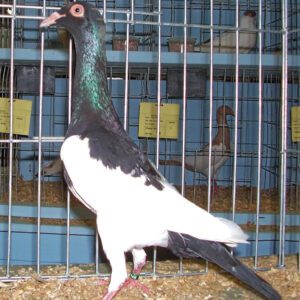
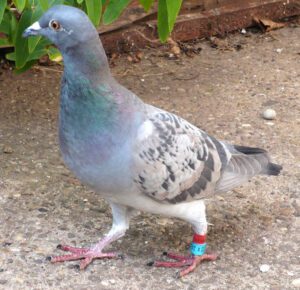
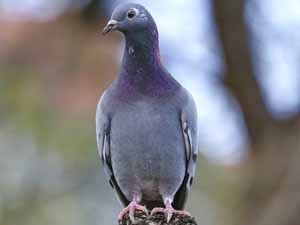
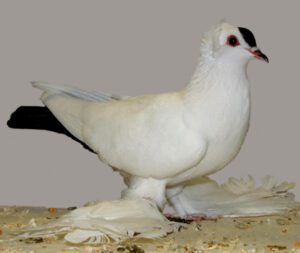
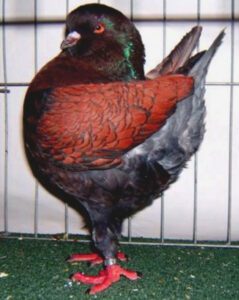
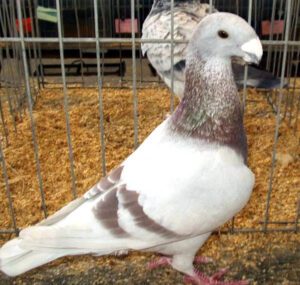
We would like to start raising pigeons and using to flush for our birddogs
How would you go about this???